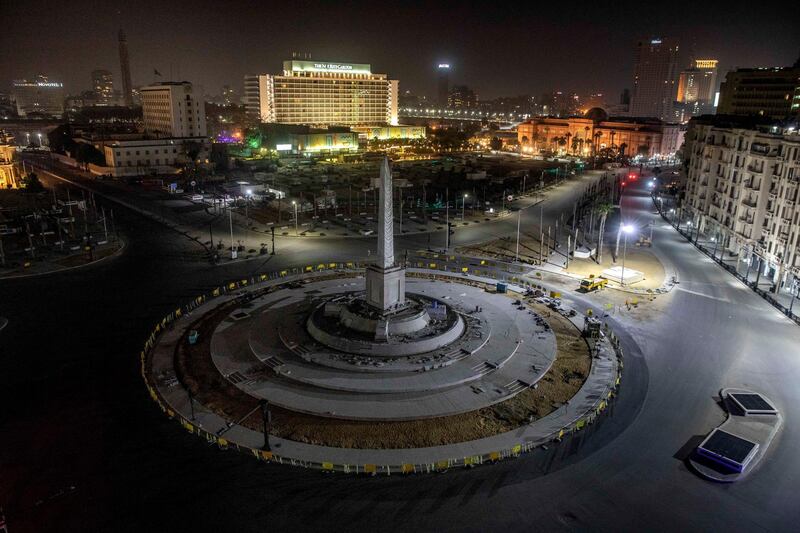Egypt's prosecutors are investigating a man they accused of attempting to sexually assault two women and a girl under the age of 18, and of blackmailing others for sex.
The office of chief prosecutor Hamada Al Sawy said the man, a former student, will be held for 15 days pending the completion of the investigation.
The statement said the man admitted to meeting six women and keeping photos of a sexual nature that he claimed they gave him.
It did not say if he denied the assault and blackmail allegations.
The case led to an uproar among women's rights activists in Egypt given the country's record for harassment of women despite government efforts to combat abuse.
With sufficient evidence, the next step would be to formally charge the man and refer him for trial. If convicted, the man, in his early 20s, could face life in prison.
The suspect was enrolled at the American University in Cairo (AUC) before he moved to Barcelona to study. However, he was suspended from the Spanish university and expelled following the allegations, according to his father.
The suspect was detained in Cairo on Saturday.
Women's rights groups said the infrequency of court cases against offenders was chiefly the outcome of acquiescence whereby many Egyptians – men and women – explained such crimes away as the result of women's provocative attire or economic hardship.
Egypt's street harassers are often in their early teens. Some are as young as 9 or 10.
Women following Islam's conservative dress code – which demands that everything except the eyes be covered – have suffered sexual harassment on the streets.
The case also turned the spotlight on a patriarchal society in which women's rights were dismissed or held to be inferior to those of men.
Campaigners and social media users have vilified families and educational institutions for counselling their members not to go public with their experiences of sexual harassment or assault on the grounds that shame or disrepute would follow.
In recent years, the government has increased penalties for those convicted of rape or harassment, but the problem persists, prompting calls for effective societal reform.
Significantly, the country's highest Islamic authorities – Al Azhar Mosque and the mufti – weighed in on the debate surrounding the case.
Both rejected a commonly held view that attire was to blame for the harassment or assaults women suffered and they called on authorities to deal firmly with perpetrators. They described the attire argument as malicious and delusional.
According to a statement from the public prosecutor's office, a woman who filed a complaint against the former AUC student provided prosecutors with copies of WhatsApp messages she said showed how he tried to blackmail her into having sex with him.
The statement said the messages showed that he threatened to tell the woman's family that she was involved in prostitution and drugs unless she agreed.
The woman, who was not identified, rejected his threats.
The statement said prosecutors questioned four other women and an underage girl who met the accused on social media between 2016 and this year. It said the five women fought off the man's sexual assaults at his residence in a Cairo compound. He later threatened to publicise compromising photos if they did not have sex with him.
It said the suspect admitted meeting six women on social media and that he kept compromising photos that he alleged they sent to him. He threatened to send the images to the women's families when they ended their relationships with him, prosecutors said.
"The prosecution would like to emphasise its resolve to combat this crime and its rejection of putting the blame on the victims for contributing to what happened to them or to justify the crime in any way," the prosecutor's office said.
It urged victims of sexual harassment to file complaints directly to prosecutors and security agencies instead of sharing their experiences on social media.
"The prosecution urges people to report whatever they find untoward, their complaints and any supporting evidence to the guardians of justice in this country ... rather than share them with those who are ignorant and not specialists."







